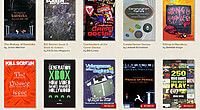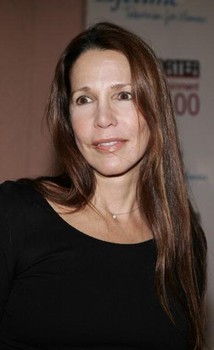As the digital publishing revolution continues to turn the publishing world on its collective head, new changes to the existing models come every day. Ebooks made headlines around the world when they finally began accounting for sizeable chunks of publishers’ profits, and entire publishing houses were launched that focused on ebook-only or digital-first releases. More recently, publishers like Amazon announced they would no longer pay royalties to authors in an outdated quarterly system. It’s been a long time coming, but change is finally here.
So it’s still surprising when an author faces some of the age-old considerations. Patti Davis, keenly remembered for being labelled as a somewhat tempestuous First Daughter during the Reagan administration, is one such author.
After traditionally publishing eight books, Davis found herself once again making the rounds of agents and publishers for her most recent novel, Till Human Voices Wake Us. The book received a lot of favorable attention but no offers, at which point one industry professional finally told her the truth: “If it weren’t you, I could sell this book in a minute.”
“I could not get my fiction published,” explained Davis in an interview this week with GoodEReader. “That just became really evident to me with this novel. I began working on it about twelve years ago. My literary agent made the rounds with it and everyone really liked it but no one wanted to buy it. He told me, ‘The problem is that it’s you, and they’re so used to you writing non-fiction.'”
As Davis found herself more and more confined to the box of writing about her famous family which the publishing industry had placed her in, she realized that self-publishing was becoming a more and more viable option.
“Recently, I was paying attention to Kindle Direct Publishing and CreateSpace. I was very interested in the whole Amanda Hocking thing and how the tipping point for her was the book bloggers. There was a moment when I thought, ‘I could die with these unpublished novels on my computer, and maybe they’ll get published posthumously.’ And that’s just not okay with me.”
Davis revamped one of those novels and updated its cultural references for this time period, then pursued self-publishing.
“I am not the most tech-savvy person in the world, so I looked at the tutorials… twice! But I thought, ‘I can do this!'” And Davis’ book journey into becoming a hybrid author took its turn into self-publishing.
“I have always been in love with writing. That’s all I’ve ever wanted to do. But I’ve not been in love with the profession of being a writer. Every time publishers got involved, it became so stressful and often times really negative. For all the same reasons that other authors have described, I have the added detail of being who I am and being reviewed for my personal life and my personal past. What it really boils down to is that authors aren’t treated really well by the publishing industry. You end up begging an agent to take you on and begging a publisher to put your book out into the world. I really think that if you’ve written a book you have the right to put your work out into the world and it will succeed or fail on its own merit.”
Mercy Pilkington is a Senior Editor for Good e-Reader. She is also the CEO and founder of a hybrid publishing and consulting company.

